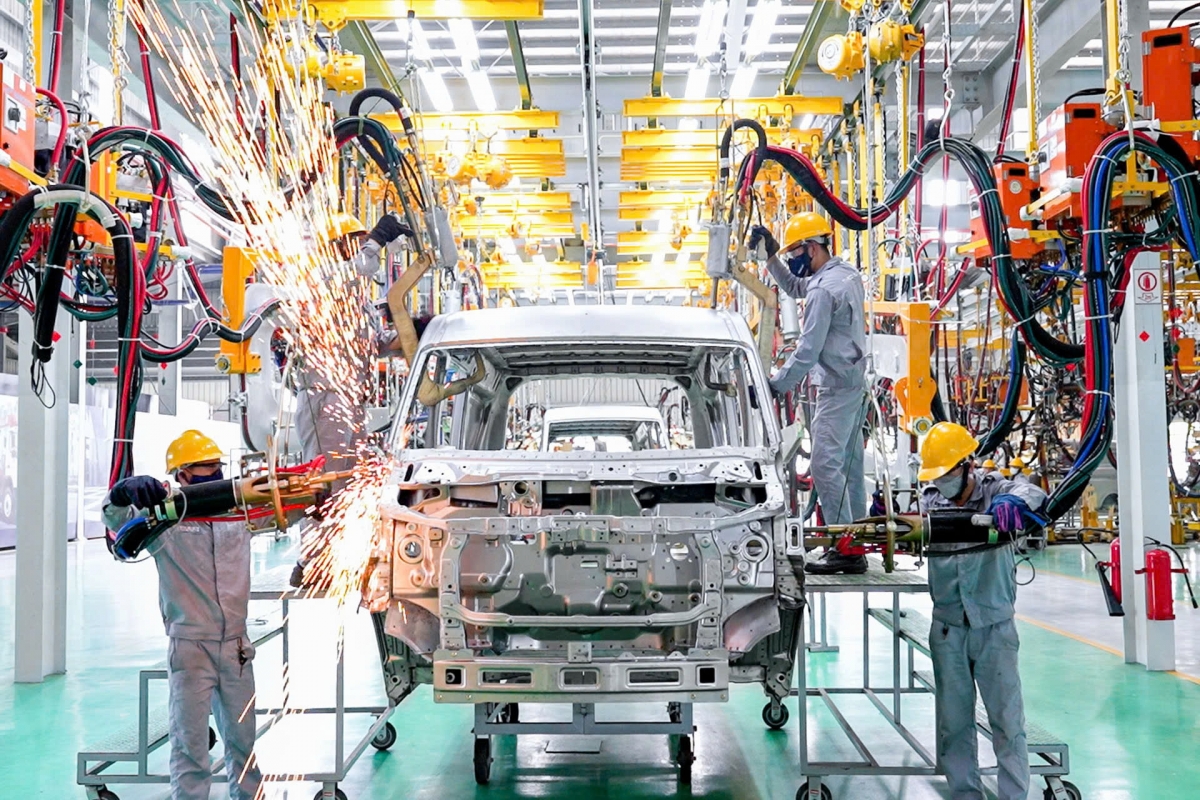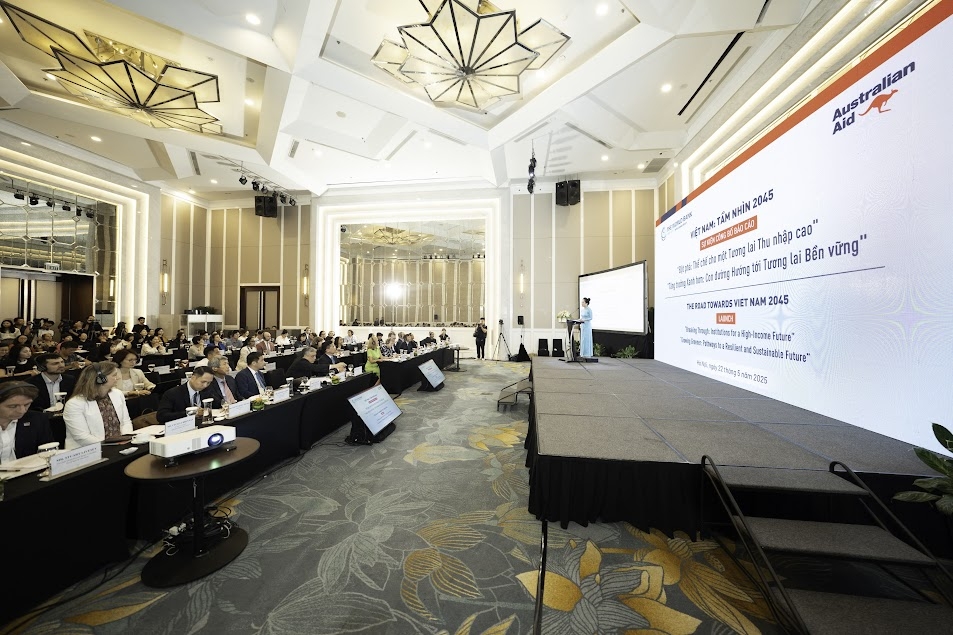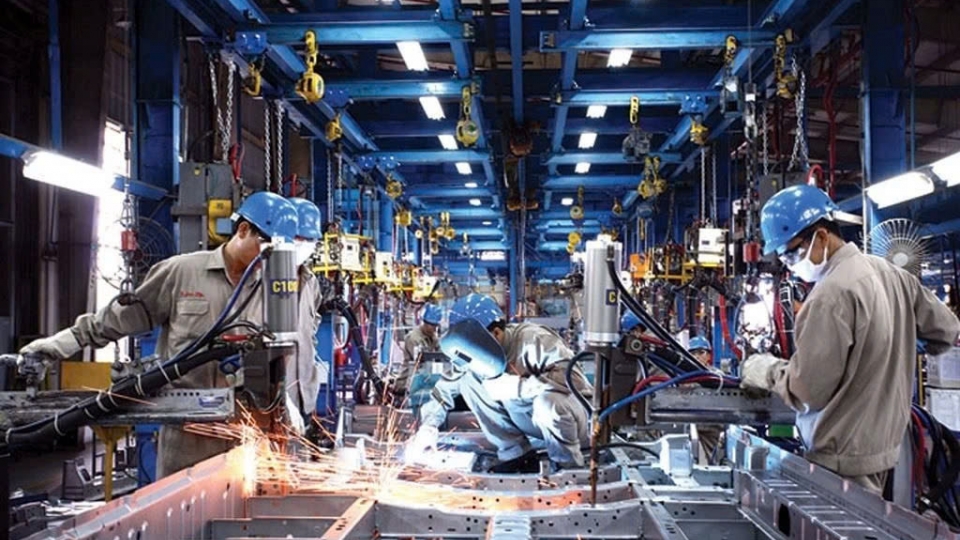Vietnam likely to become high-income country if it fosters strategic drivers, says WB
VOV.VN - Vietnam can fully realise its goal of becoming a high-income country by 2045, provided it stays committed to pursuing two strategic drivers - institutional reform and green development, according to the World Bank (WB).

This assessment was presented during the launch of two key reports Vietnam 2045 Breaking Through Institutions for a High-Income Future, and Vietnam 2045 Growing Greener - Pathways to A Resilient and Sustainable Future by the World Bank in Hanoi on May 22.
The reports outline Vietnam’s long-term development path amid global uncertainties and the need to shift its growth model.
In the first report, the World Bank recommended that Vietnam strengthen its legal framework and improve the efficiency of public investment to sustain high growth and reach its 2045 high-income target.
To maintain rapid economic growth, they said, Vietnam must consolidate its legal system and enhance the regulatory environment. Public investment must be managed more effectively, focusing on both scale and quality, from project selection to implementation and monitoring. International experiences show that countries which escape the middle-income trap and transition to high-income status consistently improve the quality of their institutions.
World Bank Country Director Mariam J. Sherman for Vietnam, Cambodia, and Laos, noted that Vietnam’s path toward becoming a high-income country by 2045 clearly demonstrates the critical role of institutions in sustaining long-term growth. While recent reforms signal a strong commitment, Vietnam must now pursue bolder, breakthrough institutional reforms to unlock the private sector’s full potential and create quality jobs for its people.
The report underscores that certain institutional reforms will be pivotal in shaping Vietnam’s next phase of development. In particular, better governance in public investment, through rigorous project appraisal, transparent implementation, and strong oversight, is essential to avoid inefficiencies and maximise returns.
According to the report, enhancing the legal and regulatory framework is seen as vital to creating a transparent, stable, and predictable business environment. Strengthening the legal framework will help foster a more transparent and predictable environment for investors and businesses. In addition, local governance must also improve, with increased autonomy for provinces and cities, greater accountability, and better coordination across jurisdictions.
To become a high-income country, Vietnam must build an efficient and accountable civil service to ensure legal due process, transparency, and independent oversight, the WB leadership stated.

Alongside institutional reform, the second report highlights that climate adaptation investment is key to minimising weather-related risks to Vietnam’s agriculture, businesses, and industrial infrastructure.
Stark projections show rising sea levels of 75 to 100 cm could flood nearly half of the Mekong Delta by mid-century. A 2024 WB survey finds that 75% of businesses in Vietnam’s major export sectors such as garments and electronics are operating in areas frequently exposed to extreme heat, putting 1.3 million workers in vulnerable conditions.
Without timely adaptation measures, climate change could cost Vietnam up to 12.5% of GDP by 2050, compared to baseline scenarios, and this therefore would pose a serious threat to Vietnam’s goal of becoming a high-income country by 2045.
In response to the growing threat of climate change, Sherman said, Vietnam must act now to safeguard land, communities, and infrastructure from climate-induced shocks.
She recommended that Vietnam begin implementing early adaptation measures, underlining the importance of creating supportive mechanisms and policies that encourage both businesses and citizens to actively respond to climate risks. Moreover, climate risk management should be mainstreamed across all sectors of the economy to ensure a resilient and sustainable development trajectory.
According to World Bank calculations, strategic adaptation investments could cut climate-induced GDP losses by nearly half, from 12.5% down to 6.7% by 2050.
Yet, the report also highlights viable opportunities for Vietnam to reduce carbon emissions, supporting the government’s net-zero emissions target by 2050. Indeed, the private sector will play a central role in driving the country’s green transition and realising its climate and development goals by 2045.
The report outlines concrete steps to accelerate energy transition, urging Vietnam to leverage increasingly cost-competitive renewable technologies to improve industrial energy efficiency. If implemented effectively, this transformation could spur innovation, sustainable growth, and job creation.
Vietnam has also been urged to tap into its marine economic potential as a pathway toward a greener, more climate-resilient future. With 30% of the population living along the country’s 3,260 km coastline, and nearly half of the population dependent on marine ecosystems for their livelihoods, sustainable ocean economy development is critical, it states.
The report also highlights the significant opportunity in offshore wind energy, with a potential capacity of up to 475 GW, along with wave energy, which are both key to reducing dependence on fossil fuels and cutting greenhouse gas emissions.
In addition, restoration of mangrove forests, seagrass beds, and coral reefs is also described as essential, as these ecosystems strengthen coastal resilience and serve as natural carbon sinks, contributing significantly to both climate adaptation and emissions reduction goals.




